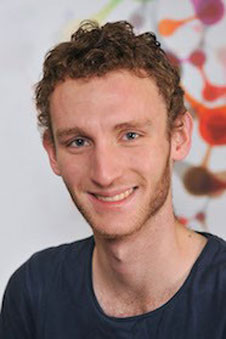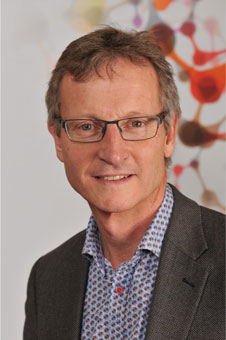 Tuesday 3 July 2018 7:44am
Tuesday 3 July 2018 7:44am
PhD candidate Ben Halliday
A world-first discovery by University of Otago scientists may change the way children suffering from a rare form of kidney cancer are treated.
Wilms tumour, a kidney cancer with numerous subtypes, is one of the most common cancers of early childhood, usually affecting children younger than 10.
Lead author and Otago PhD candidate Ben Halliday says the researchers uncovered mutations in a gene called TRIM28 which causes a distinctive subtype of Wilms tumour, often affecting children in the first year of their life.
“Until now there has been no good way to diagnose it with certainty. We believe our discovery will give paediatric oncologists the confidence to treat these children with surgery alone.
“By omitting chemotherapy, the children can avoid further long-term damaging health consequences,” Mr Halliday says.
The study, published in PLoS Genetics, which focused on five children with the Wilms tumour subtype, included two children from one New Zealand family.

Professor Ian Morison
“Occasionally, Wilms tumours run in families and our discovery has added to the small list of causes of these familial cancers. The good news is that the families can now test their children and monitor them closely for tumours, allowing for immediate responses if a tumour should arise. In addition they now know that if a child gets Wilms tumour it will almost certainly be easily curable.”
Senior author Professor Ian Morison, of Otago's Department of Pathology, believes the study demonstrates the enormous power of the human genome project as it allows for gene sequencing to be carried out easily and cheaply.
State-of-the-art sequencing technology, like what was used in this study, is being applied to many different cancers and genetic conditions to divide diseases into actionable subgroups. This provides accurate diagnoses and can be used to help modify treatment for many rare disorders.
“All of the mutations that we discovered cause complete loss of TRIM28 function, which has never been observed before in cancer.
“This discovery reveals another way cancer can hijack cell pathways during its growth. Researchers, world-wide, will find this useful when studying other types of cancer,” Professor Morison says.
The Otago-led research was part of an international collaboration between New Zealand, Japan, the UK and Australia, and received funding from Ministry of Business Innovation & Employment and The Japanese Society for the Promotion of Science, Cure Kids, the Dunedin School of Medicine, and the Maurice and Phyllis Paykel Trust.
The work also provided a satisfying reward for Otago Emeritus Professor Tony Reeve who retired after a distinguished career in which he made several major contributions to the world's understanding of Wilms tumours.
For more information, contact:
Ben Halliday
PhD candidate
Department of Women's and Children's Health
Dunedin School of Medicine
University of Otago
Email halbe104@student.otago.ac.nz
A list of Otago experts available for media comment is available elsewhere on this website.
Electronic addresses (including email accounts, instant messaging services, or telephone accounts) published on this page are for the sole purpose of contact with the individuals concerned, in their capacity as officers, employees or students of the University of Otago, or their respective organisation. Publication of any such electronic address is not to be taken as consent to receive unsolicited commercial electronic messages by the address holder.